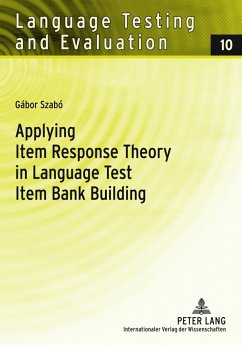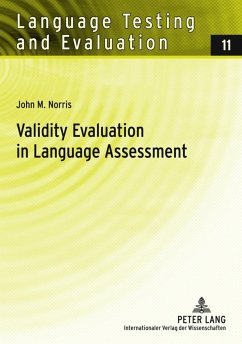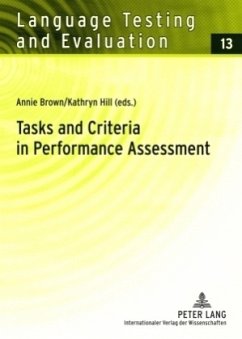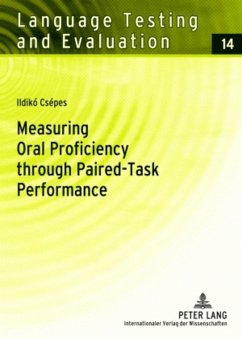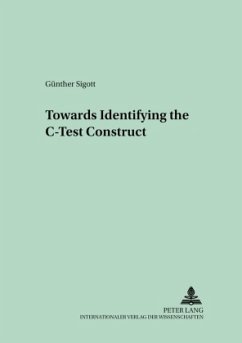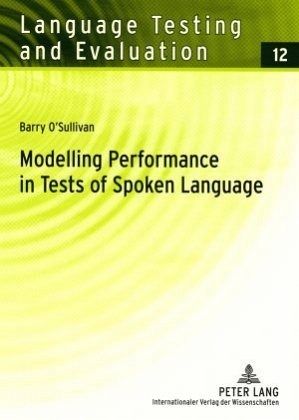
Modelling Performance in Tests of Spoken Language
Versandkostenfrei!
Versandfertig in 6-10 Tagen
68,95 €
inkl. MwSt.

PAYBACK Punkte
0 °P sammeln!
When we use a language we are always aware of our audience. This awareness is reflected, for example, in changes to the way we speak to the same person in different contexts or to different people in the same context. This book explores the way in which test takers' language can change in test events depending on either real or perceived similarities or differences between themselves and their interlocutors. The series of five studies reported are designed to explore aspects of test-taker performance on tests of speaking, and in doing so provide evidence in support of a proposed model of speak...
When we use a language we are always aware of our audience. This awareness is reflected, for example, in changes to the way we speak to the same person in different contexts or to different people in the same context. This book explores the way in which test takers' language can change in test events depending on either real or perceived similarities or differences between themselves and their interlocutors. The series of five studies reported are designed to explore aspects of test-taker performance on tests of speaking, and in doing so provide evidence in support of a proposed model of speaking test performance. Though the studies focus primarily on the effect on test-taker performance of characteristics associated with their interlocutor, they also provide empirical evidence of interactions between the factors. There are clear implications from the findings for all of those people involved in language testing and in researching spoken language.






